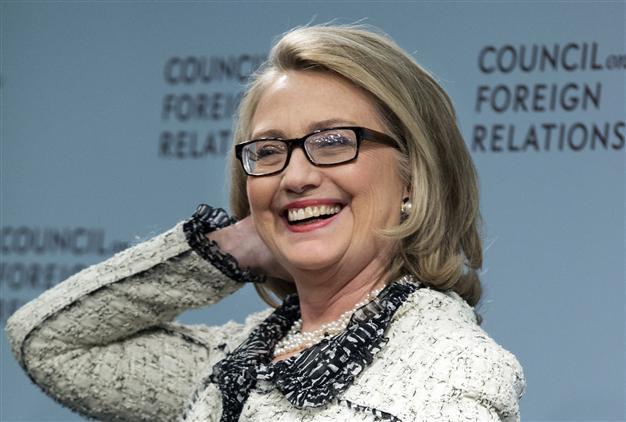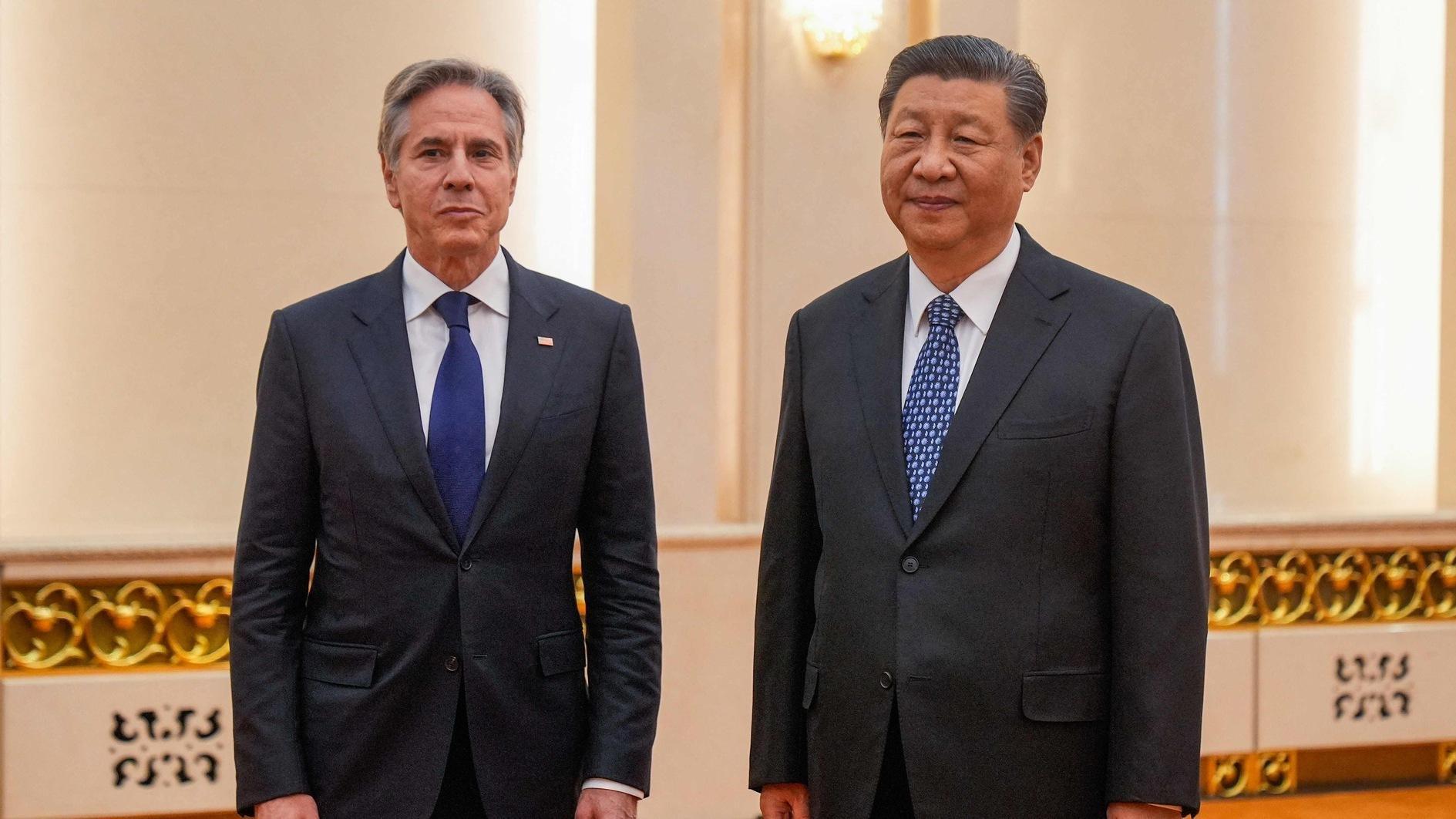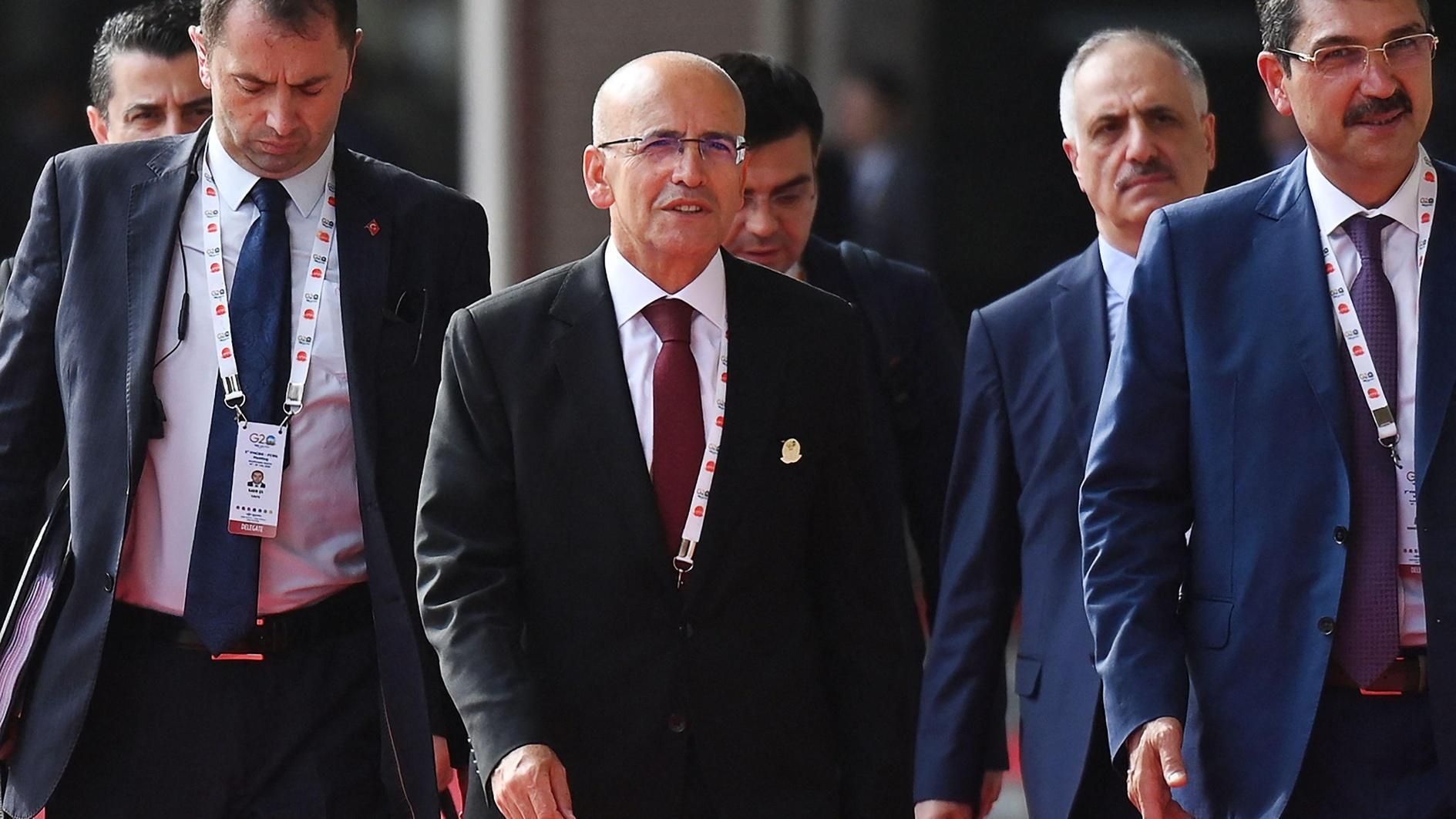Turkey attack overshadows Clinton's last day
WASHINGTON - Agence France-Presse

Secretary of State Hillary Rodham Clinton smiles before speaking on American leadership at the Council on Foreign Relations in Washington, Thursday, Jan. 31, 2013. AP photo
Secretary of State Hillary Clinton bade farewell to her staff Friday on her final day as America's top diplomat that was marred by the latest in a series of attacks on US missions.Between walking around the sprawling State Department to say her goodbyes, Clinton also found herself on the phone again with a foreign leader -- this time because the US embassy in Ankara had come under attack.
It was a phone call that has become all too familiar in recent months, especially since the September attack on the outpost in Benghazi, eastern Libya, in which the ambassador, Chris Stevens, and three other Americans died.
"I am very proud of the work we have done together," Clinton, 65, told hundreds of cheering staff as she prepared to leave, having tendered her letter of resignation to President Barack Obama.
"Of course, we live in very complex and even dangerous times, as we saw again just today at our embassy in Ankara, where we were attacked and lost one of our foreign service nationals, and others injured.
"I know that the world we are trying to help bring into being in the 21st century will have many difficult days," Clinton said.
But the former first lady and New York senator said she was "more optimistic today than I was when I stood here four years ago" because of the department's work to help ensure "peace, progress and prosperity" around the world.
US officials said they are probing what happened in Ankara, when a bomber wearing a suicide vest blew himself up at the first checkpoint on the perimeter of the embassy compound, killing a local Turkish security guard.
The bombing once again exposes the vulnerability of the army of 70,000 US diplomats -- many of whom operate in the world's hotspots -- an issue set to be one of the top priorities for incoming secretary of state John Kerry.
Kerry, who was to be sworn in at a private ceremony by Justice Elena Kagan later Friday, told the Boston Globe that he would begin working on diplomatic protection when he starts at 9:00 am (1300 GMT) Monday.
"There are certain things I intend to issue instructions on the minute I come in," Kerry told the leading daily paper in his home state of Massachusetts, where he served as a senator for 28 years.
"I won't go into the details, but Benghazi, embassy security, issues regarding some of the analysis that I want to track with respect to Iran, with respect to Syria. Trouble spots." Kerry also pointed to a "major meeting on Syria in the next few days," although it was not immediately clear whether he was just referring to talks being held at the Munich Security Conference.
Clinton won't return to politics
"I hearby resign as 67th secretary of state," Clinton told Obama in her letter of resignation, adding she was "proud of what we have accomplished together on behalf of the American people and in pursuit of our interests and values." She steps down with record popularity ratings of around 65 percent, and amid intense speculation that she could launch a second bid to be the nation's first woman president in the 2016 elections.
But so far Clinton has said she doesn't see herself returning to politics, saying instead she wants to work on advocacy and philanthropy and continue "the cause of my life," furthering the rights of women and girls.
Political analysts however say she could be the Democratic Party's best hope in four more years, and she would have good odds of breaking through that last glass ceiling.
"She is (a) more admired, less polarizing figure than she was in 2008," Democratic strategist Geoff Garin told National Public Radio.
"The political prospects are really quite good, and better than they were when she last ran for president." Kerry meanwhile revealed he would make his first foreign trip in February, but said he had no plans to beat Clinton's record of visiting 112 countries.
He also said Obama had asked him to replace Clinton a full week before US ambassador to the United Nations, Susan Rice, pulled out of the race.
Rice, who had been thought to be Obama's first choice for the post, had come under Republican fire for comments she made during the Benghazi maelstrom.
















